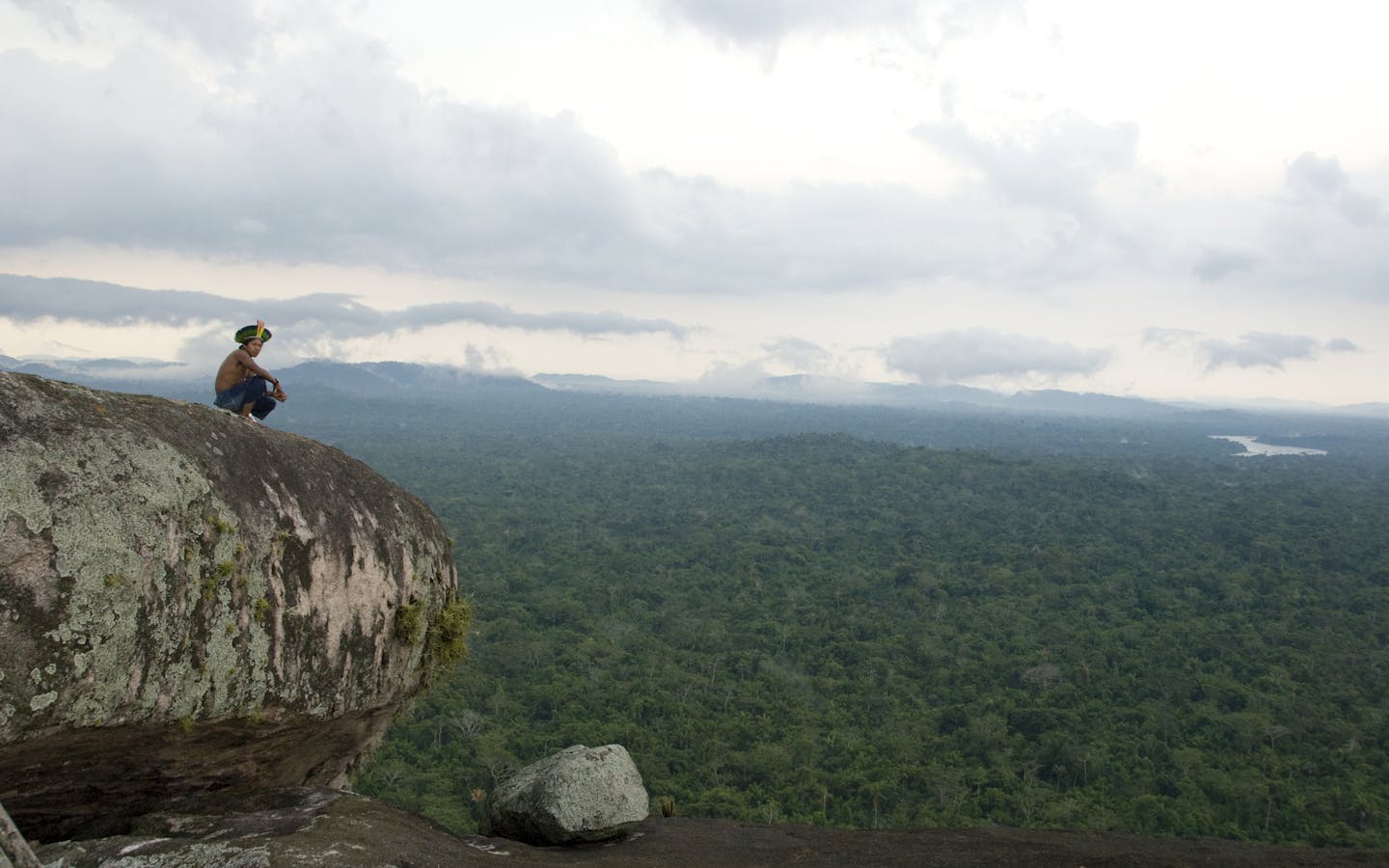Indigenous peoples manage only 20% of the world’s land, yet this land holds a significant share of global biodiversity. Despite this, indigenous peoples have legal right to only about 6% of the world’s land, and often, these rights are restricted in practice. Conservation International believes indigenous peoples must be able to effectively manage their lands and resources while maintaining their natural and cultural heritage.
The principle of Free, Prior and Informed Consent (FPIC) refers to the right of indigenous peoples to give or withhold their consent for any action that would affect their lands, territories or rights.
- "Free" means that indigenous peoples' consent cannot be given under force or threat.
- "Prior" indicates that indigenous groups must receive information on the activity and have enough time to review it before the activity begins.
- "Informed" means that the information provided is detailed, emphasizes both the potential positive and negative impacts of the activity, and is presented in a language and format understood by the community.
- "Consent" refers to the right of the community to agree or not agree to the project before it begins and throughout the life of the project.
Our plan
As a way to further improve our practice and demonstrate our commitment to respecting rights, in 2013, we created guidelines on FPIC for our own work.
As part of their ongoing collaboration with Conservation International, the members of our
Indigenous Advisory Group created a set of case studies that examine the principle of FPIC and its implementation in several geographies. These case studies, along with three case studies of our own work, formed the foundation for creating the guidelines.
Although these guidelines are intended for Conservation International's own work, we are pleased to share them in the hope that others will find them equally useful in increasing effective dialogues and respecting the rights of indigenous
peoples.
Conservation International's Indigenous Advisory Group Discusses Indigenous Rights
Since 2009, the Indigenous Advisory Group has been providing advice and feedback to Conservation International on issues related to indigenous rights, climate change and forest conservation issues. Learn more about the individual members as they discuss their personal and professional experiences working on rights in their own countries.
-
Ramiro Batzin: Respecting Traditional Knowledge in Guatemala
-
David James: Creating Collective Decision-making Structures in Guyana
-
Paulo Celso de Oliveira: Improving Indigenous Consultation in Brazil
-
Kanyinke Sena: Increasing Fair and Effective Participation in Kenya
-
Mina Setra: Resolving Conflict Though Participation in Indonesia




